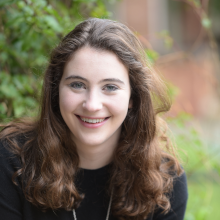2020 Responsible Machine Learning Summit: AI and COVID-19

Elissa Redmiles, Researcher, Microsoft Research
Responsibly Encouraging Adoption of Contact Tracing Apps: How Good is Good Enough?
Abstract: A growing number of contact tracing apps are being developed to complement manual contact tracing. Yet, for these technological solutions to benefit public health, users must be willing to adopt these apps. While privacy was the main consideration of experts at the start of contact tracing app development, privacy is only one of many factors in users' decision to adopt these apps. This talk presents an empirically validated framework of the inputs that factor into users' decision to adopt COVID19 contact tracing apps, including app accuracy, privacy, benefits, and mobile costs. Using predictive models of users' likelihood to install COVID apps based on quantifications of these factors, we show how high the bar is for these apps to achieve adoption and suggest directions for ethically encouraging adoption.
Biography: Dr. Elissa M. Redmiles is an incoming faculty member and research group leader of the Digital Harm group at the Max Planck Institute for Software Systems. She was previously appointed to the faculty of Princeton University and now serves as a consultant and researcher at multiple institutions, including Microsoft Research and Facebook. Dr. Redmiles uses computational, economic, and social science methods to understand users’ security, privacy, and online safety-related decision-making processes. Her work has been featured in popular press publications such as Scientific American, Wired, Business Insider, Newsweek, Schneier on Security, and CNET and has been recognized with a Distinguished Paper Award at USENIX Security and the John Karat Usable Privacy and Security Research Award. Dr. Redmiles received her B.S. (Cum Laude), M.S., and Ph.D. in Computer Science from the University of Maryland. As a graduate student, she was supported by a NSF Graduate Research Fellowship, a National Defense Science and Engineering Graduate Fellowship, and a Facebook Fellowship.: